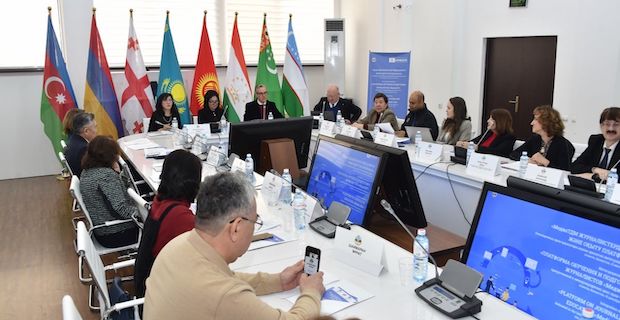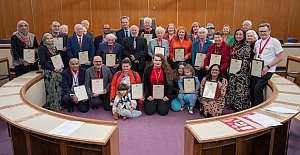On the eve of Independence Day, the al-Farabi Library hosted the solemn launch of the MediaSDG platform, a project of four Massive Online Courses (MOOCs) supported by the International Program for the Development of Communications (IPDC) and the UNESCO Cluster Office in Almaty. This event was dedicated to International Human Rights Day because the right to information is among the paramount fundamental freedoms.
Member of the Board, Vice-Rector for Operations Assel Uvalieva, noted that Al-Farabi KazNU is the leader in Kazakhstan in developing and using massive online courses. Our employees, taking into account also international experience, have created an adapted platform on which more than 80 courses of domestic and foreign teachers, scientists, and public figures have already been accumulated. And the choice of such a form as a massive online course is due to the demand for modern pedagogical concepts that are massive, freely scalable, using the entire palette of digital tools.
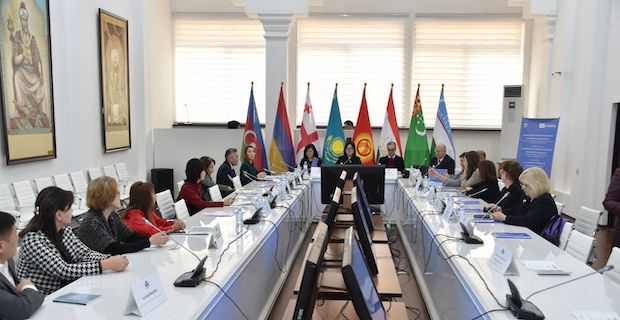
The head of the UNESCO Cluster Office in Almaty, Magnus Magnusson, highly appreciated the new initiatives of the UNESCO Chair in Journalism and Communication in Almaty, especially emphasizing that the training courses are in line with the Sustainable Development Goals (SDGs): 4 - quality education, 5 - gender equality, 13 - urgent measures on combating climate change, 16 - peace, justice, and strong institutions.
Second Secretary of the Department of Multilateral Cooperation of the Ministry of Foreign Affairs of the Republic of Kazakhstan Ardak Bekenova outlined a wide range of UNESCO activities and partnerships with the country's leading universities, thanks to which cultural heritage is preserved, mutual understanding is built in societies, and information is kept open.
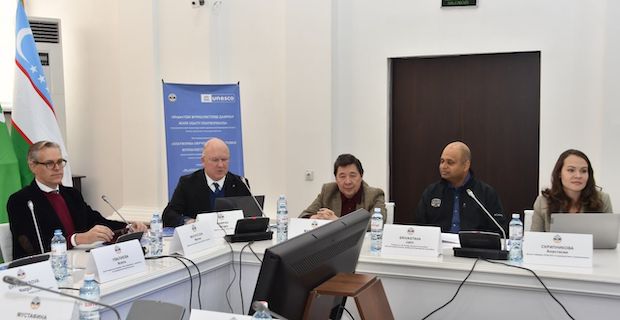
The project's working group presented new courses, including video lectures, tests, essays, and additional interactive resources. The authors are leading teachers of the Al-Farabi Kazakh National University: Associate Professor, Candidate of Philological Sciences E. Dudinova, created the course "Media coverage of the problem of violence against women and girls," Associate Professor, Candidate of Philological Sciences A. Rozhkov "Typical course on the safety of journalists," Associate Professor, Candidate of Philological Sciences M. Negizbayeva course "Covering the topic of climate change and sustainable development," senior lecturer, Ph.D. A. Skripnikova course "Conflict-sensitive journalism." The project leader, head of the department, Doctor of Philology N. Shyngysova, explained that mass online courses allow students to expand their competencies and get practical recommendations since the actual content of the modules is implemented through the international standards of the UN and UNESCO. The courses were prepared with the active support of the Office of Academic and Digital Innovations of the University (supervisor - Associate Professor, Candidate of Philology A. Musinova).
Sergey Karpov, head of the Communications and Information Department of the UNESCO Cluster Office in Almaty, called education, training, advanced training based on the best international experience by the best university teachers in the country the most important way to support free public institutions, in particular, journalism and social networks.
Professor of the Ohio University School of Journalism and Director of the Institute of International Journalism Jatin Srivastava spoke about the importance of new forms of education, the need for a clear understanding and adherence to international standards, which allows modern media to maintain the role of the most important democratic institution in society.
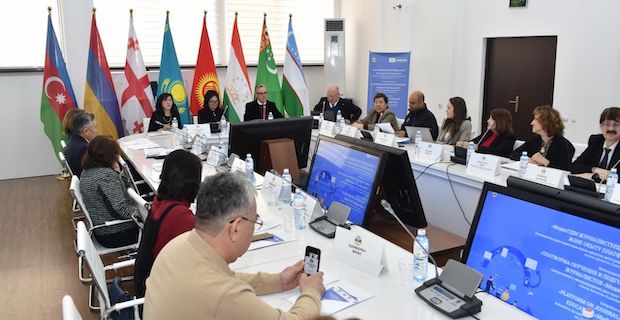
Answering the questions of the meeting participants, the authors of the projects noted a significant difference between mass online courses and classical courses: capacity, visualization, and interactivity. Kind words at the launch of the platform were expressed by partners from the countries of Central Asia and the Caucasus. An important detail: the summaries of the courses have been translated into eight languages.
Representatives of the Kazakh National Pedagogical University, named after Abai, the Kazakh-German University, and the Institute of Oriental Studies, named after R. Suleimenov and others, took part in the discussion about the role and potential of the UNESCO Chairs.
The department plans to replenish the platform with new relevant courses.


 Prime Minister Keir Starmer's 2025 Easter message
Prime Minister Keir Starmer's 2025 Easter message After Nesil Caliskan a by-election will be held in Jubilee ward in Enfield
After Nesil Caliskan a by-election will be held in Jubilee ward in Enfield Publishing the analysis, Labour’s Cllr Ergin Erbil said Everybody in Enfield deserves basic rights
Publishing the analysis, Labour’s Cllr Ergin Erbil said Everybody in Enfield deserves basic rights Gaza-Israel conflict Statement from Cllr Ergin Erbil, Leader of Enfield Council
Gaza-Israel conflict Statement from Cllr Ergin Erbil, Leader of Enfield Council The European Union called on Turkey to uphold democratic values
The European Union called on Turkey to uphold democratic values Turkish citizens in London said Rights, Law, Justice
Turkish citizens in London said Rights, Law, Justice The Council of Turkish Cypriot Associations Geneva response letter
The Council of Turkish Cypriot Associations Geneva response letter Sustainable Development and ESG, Will This Become the Course for Turkic World
Sustainable Development and ESG, Will This Become the Course for Turkic World The 'Prince of Paris' has impressed in his first EuroLeague season
The 'Prince of Paris' has impressed in his first EuroLeague season Saran Media And Euroleague Basketball Extend Media Rights Partnership for Four More Years
Saran Media And Euroleague Basketball Extend Media Rights Partnership for Four More Years Will Rangers be Jose Mourinho’s next victim?
Will Rangers be Jose Mourinho’s next victim? Jose Mourinho's Fenerbahce face Rangers on Thursday
Jose Mourinho's Fenerbahce face Rangers on Thursday Barclays has become the biggest UK lender so far to cut mortgage rates
Barclays has become the biggest UK lender so far to cut mortgage rates THE SPRING STATEMENT EXPLAINED, UK ECONOMIC OUTLOOK AND GROWTH FORECASTS
THE SPRING STATEMENT EXPLAINED, UK ECONOMIC OUTLOOK AND GROWTH FORECASTS Launch of Made in Enfield gift shop to celebrate local artists and designers
Launch of Made in Enfield gift shop to celebrate local artists and designers Trial used smart Wi-Fi sensors for live building occupancy data to optimise
Trial used smart Wi-Fi sensors for live building occupancy data to optimise





